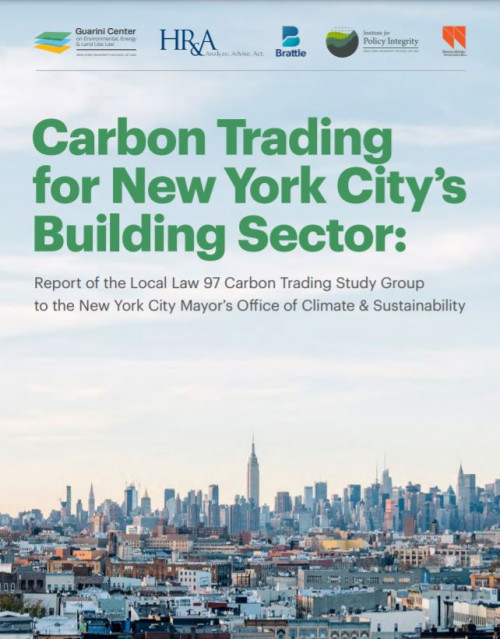-
Comments to BLM on 2022 First Quarter Lease Sales
We applaud BLM for considering and monetizing climate impacts in their environmental assessments (EAs) for oil and gas lease sales, but recommend that the agency improve its decisionmaking by better incorporating these values into its final determination, considering the informational value of delaying leasing, and conducting more robust environmental justice analyses to inform its decisionmaking.
-
Comments to FERC on Transmission ANOPR
Our comments recommend that FERC make significant changes to enhance the transmission planning and cost allocation processes -- changes that address barriers to development of regional and interregional transmission that would interconnect and integrate far-flung but low-cost renewable resources. We argue for using a nationally uniform, forward-looking cost-benefit analysis to guide project selection and encourage the Commission to consider prescribing cost allocations that distribute the costs associated with societal benefits and public goods as broadly as possible.
In reply comments to comments submitted by other parties, we clarify that FERC has authority to define the benefits of transmission capacity and to guide the allocation of transmission project costs among beneficiaries.
-
Comments to DHS on Proposed Rule on DACA
Policy Integrity encouraged the Department of Homeland Security to supplement its justification for the rule by quantifying and monetizing key unquantified benefits in the RIA, such as improvements in mental health, increased belonging, and hope for the future. The comments also recommended that DHS offer more evidence that the DACA program has no significant effect on legal or illegal immigration and more thoroughly address litigation risk and case-by-case enforcement arguments for rescinding the program.
-
Comments to CEQ on Proposed Revisions to NEPA Regulations
We submitted comments encouraging the Council on Environmental Quality (“CEQ”) to expand its legal and economic justification for its proposal to restore several key provisions to the regulations implementing the National Environmental Policy Act (“NEPA”) that were revised improperly in 2020. Our comments also suggest regulations and guidance that would promote the public welfare and enhance agency consideration of greenhouse gas emissions, climate risk, and environmental justice.
-
Comments to HHS on Proposed Repeal of Good Guidance Practices Rule
Policy Integrity submitted comments to the U.S. Department of Health & Human Services (“HHS”)'s request for input on its proposed repeal of the Trump Administration’s Good Guidance Practices Rule (“GGP Rule”). The rule would have increased administrative complexity in ways that harmed HHS programs and public health. Our comments explain why the rule's costs justify HHS's repeal and offer ways the department can sterngthen its justification for repeal by taking note of the aggregate costs and benefits of repealing the GGP Rule and incorporating public comments on the GGP Rule into the record.
-
Comments to the Federal Insurance Office on Climate-Related Financial Risks
Insurers face and create climate risk as underwriters, investors, and risk-carriers. We submitted comments to the Federal Insurance Office (FIO) explaining how the office could use its authority to reduce these marketplace risks and to protect the affordability and accessibility of insurance.
-
Carbon Trading for New York City’s Building Sector
Report of the Local Law 97 Carbon Trading Study Group to the New York City Mayor’s Office of Climate & Sustainability
NYU researchers assessed whether New York City should adopt a carbon trading program for its buildings pursuant to its landmark climate law, Local Law 97 of 2019. The study offered two proposals for trading programs, both of which would benefit the City as a whole, and environmental justice communities in particular, and found that both proposals would lead to deeper GHG reductions and lower the cost of complying with LL97.
-
Comments on EPA’s Draft 2022–2026 Strategic Plan
The comments encourage EPA to clearly articulate in its final strategic plan that the agency will incorporate environmental justice and equity into its rulemakings and regulatory impact analyses and recommends several steps toward that end. These include: analyzing the distributional consequences of regulatory alternatives; developing a standard approach to distributional analysis that accounts for the methodological considerations described in the comments; and conducting a distributional analysis of at least one economically significant regulation within the next year incorporating our recommendations.
-
Joint Comments on Federal Agency Climate Adaptation and Resilience Plans
Policy Integrity joined other members of the Initiative on Climate Risk and Resilience Law to file comments on the Federal Climate Adaptation Plans recently issued as part of the Biden Administration's Whole-of-Government approach to climate change. Our comments recognize the importance of those plans' issuance and recommend further steps to ensure that federal agencies' approaches to adaptation reflect rigor, transparency, and coherence with respect to other climate-related objectives.
-
Comments to NRC on Addressing Environmental Justice
Policy Integrity’s comments advise the NRC to look to FERC's efforts to improve stakeholder engagement and consideration of environmental justice impacts and iterate our recommendations in the related proceedings. We highlight the benefits from robust public participation, share best practices for stakeholder engagement, and recommend ways the Commission can improve its environmental justice analysis and incorporate the findings of that analysis into its review process under the National Environmental Policy Act.





